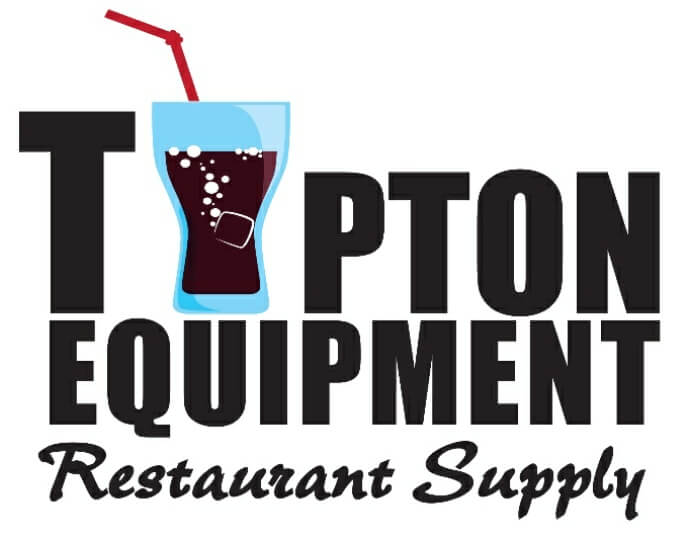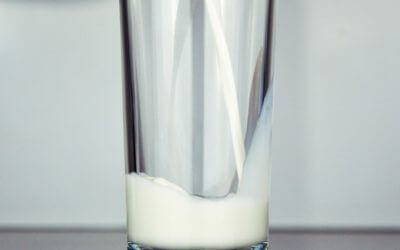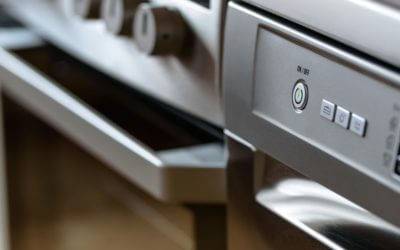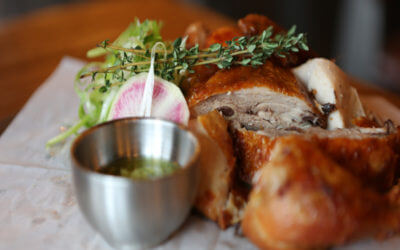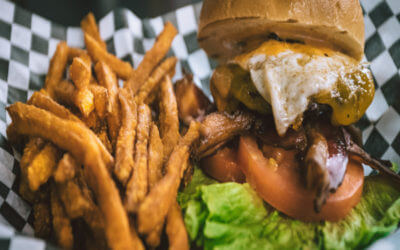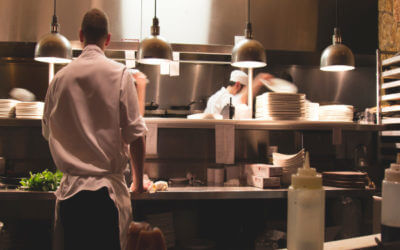How to Choose the Right Kitchen Scales for Your Restaurant
March 28, 2018A food scale is an essential item in every restaurant’s store of kitchen supplies.
Designed to take the guesswork out of food measurement and maintain consistent food serving sizes, food scales are indispensable kitchen supplies in the commercial kitchen.
With such a wide variety of food scales on the market, how do you choose? Here are a few things to consider to find the right kitchen supplies for your needs.
Digital or Mechanical
Every food scale, regardless of usage and purpose, comes in one of two options: digital or mechanical. Digital (electronic) scales are fueled by batteries and give a digital readout for weight display. Mechanical (analog) scales have an inner spring that is triggered by weight. They display weight with a rotating pin. Digital versions of these kitchen supplies can usually perform more functions than analog versions.
Platform and Container Size
Regardless of capacity, these kitchen supplies are known to come in sizes that vary wildly. While scales with smaller-sized platforms carry certain foods, you might find it difficult, or even impossible, to use them for larger foods and portion sizes. Platforms with wider bases allow for wider use, and larger containers (for wet and dry ingredients) make for more flexibility.
Purpose and Usage
Your selection of kitchen supplies always comes down to what you hope to get out of them. The purpose you have in mind for a food scale will determine the kind that best suits your purpose. For instance, while some scales are highly sensitive and meant for lightweight items like spices, herbs, etc., others can weigh items up to 15 pounds and are perfect for weighing large meat sizes.
Enhanced Features
Depending on your goals, your need for these kitchen supplies might extend beyond the use of basic weight features. Certain digital food scales are able to switch from one measurement unit to another, seamlessly. Others possess calorie reading abilities for various foods. Yet others are connected to a POS system and are used for price computation during food sales. Be certain which extra features you need from your kitchen supplies before you make your purchase.
Cleaning
If you have purchased a food scale that has a container for placement of ingredients and portions, it is important that you check that cleaning it will present no hassle. Containers that hold dry and wet ingredients should be removable, to make cleaning these kitchen supplies easier.
Design and Style
Regardless of how exposed it is, your commercial kitchen will more than likely have been built with a specific theme and styling concept in mind. Your choice of kitchen supplies – and choice of food scale model – must be able to keep that style going. If you have gone digital, also ensure that the digital display is clear and large enough for you to see at a glance.
Used for standardization both in the cooking and selling stages, food scales are also used to maintain a healthy lifestyle and to reduce waste through portion control. Once you’ve carefully determined why you need these kitchen supplies, you can get down to the business of purchasing the right ones for you.
5 Things Every Restaurant Owner Should Do Before Buying Used Kitchen Equipment
Equipping your restaurant properly can cost a lot of money, so buying used kitchen equipment is the go-to choice for many restaurateurs. Buying used kitchen equipment for a restaurant is a bit different than buying used equipment for your home, however. You will...
Top Restaurant Technology Trends in 2018
When looking to buy restaurant supplies, you want to be on the leading edge of technology trends. This will keep your kitchen running smoothly. Let’s take a look at some of the most recent trends in restaurant supplies technology. 1. New Payment Options Who would...
5 Different Ice Shapes and Why You Should Care About Them
Ice makers are very popular in the restaurant and foodservice community because they eliminate the need to buy ice every day. And of course, adding an ice maker to your collection of foodservice equipment means you will always have ice on hand when you need it. An...
Pulping and Grinding: A Starter’s Guide to Reducing Commercial Food Waste Costs
For most restaurant owners and managers, the expenses involved in making meals are always under careful consideration. Water is needed to prepare, cook and wash food; power is necessary for food prep, cooking and cooling, and so on. However, how many of us consider...
Choosing the Right Milk Cooler: Cold Wall or Forced Air?
In a restaurant, milk is an essential to have on hand for coffee and other café-style beverages, for serving with kids’ meals, and as a key ingredient in many recipes. Keeping your milk properly chilled can be difficult without the proper restaurant equipment....
How to Choose Your Next Commercial Meat Smoker
The movies that connect with us on a personal level are the ones that linger in our memories forever. Anyone who has used a commercial meat smoker knows that they have a huge influence on the taste of a meal. You need to have just the right kitchen equipment to get a...
Are High Speed Ovens Too Good to be True?
You might have heard a few of the bold claims that foodservice equipment manufacturers have been making about high speed ovens, but they can’t be possible, right? Cooking three times as faster as regular ovens? Five times as fast? Fifteen times as fast? It may seem...
Choosing the Right Food Storage Containers for Your Restaurant
Choosing the right kitchen supplies will make a difference in your restaurant. Whether it is heavy duty kitchen equipment or food storage containers, each piece of equipment plays its own important role. Today, we are going to talk about how to choose the right food...
Tipton’s Guide to Perfect Poultry Trussing
Do you ever truss birds in your commercial kitchen? Trussing is a fantastic cooking technique because it makes poultry cook faster, look more attractive and taste better. If your commercial kitchen prepares poultry, you don’t want to miss these trussing tips. Trussing...
How to Eliminate Excess Condensation in Your Kitchen
Is your commercial kitchen getting steamy? If so, you could have more than just an uncomfortable working environment on your hands. Excess moisture in your commercial kitchen can result in the corrosion of equipment, the development of mold, and even damage to your...
The DIY Guide to Your Restaurant’s Own Garden
Stocking your restaurant supply with your own home-grown herbs and produce can truly bring your dishes to life. When it comes to food, everyone knows there’s nothing like homemade and home-grown. Having your own culinary garden, however large or small, can help you...
5 Reasons a Meat Grinder Will Set Your Burgers Apart
The more you do to prepare your foods in-house with the right kitchen equipment, the fresher and more flavorful your dishes become. There are all sorts of restaurants offering fast-food style burgers, but some diners are looking for the real deal. A fresh, juicy...
Pest Preventions to Implement in Your Commercial Kitchen
Restaurant pests: it’s something that few people want to think about. Like it or not, pest management is an essential consideration for every commercial kitchen. Offering food, shelter and water, the unprepared commercial kitchen naturally provides everything pests...
Choosing the Right Material for Your Cooking Equipment
Kitchens are very unique to their chef. Just like a car mechanic has a toolbox unique to them, so is the cooking equipment in a kitchen. And over time, the same cooking equipment become a natural extension of the chef. What tools are you using in your kitchen? It...
Kitchen Hacks for Your Home
Some people are naturally good at certain skills. We all know someone who is naturally book smart, athletic, or musically inclined. What makes you jealous of them is how easy they make tasks seem compared to you. One skill might be cooking. Your dream may not be...
